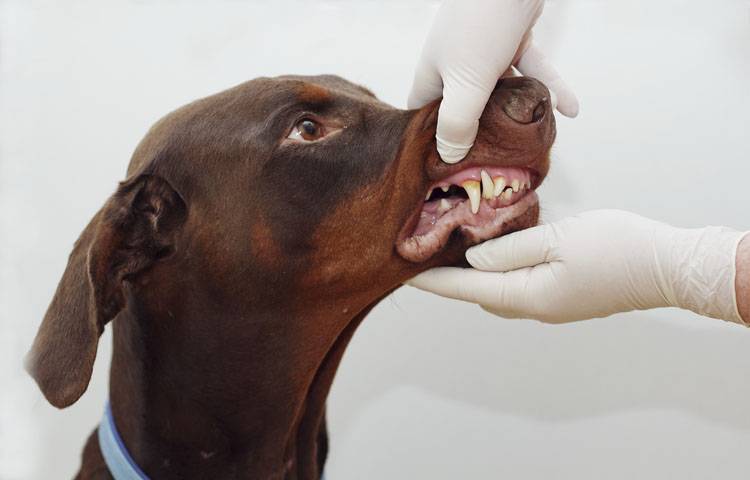Dental Health Problems in Dogs and Cats
With our pets living longer lives due to better medical treatments, diagnostic tools and advanced nutrition, pets are healthier and happier than ever. However, with longer lives bring more cases of dental diseases. In fact, most of the severe medical problems diagnosed in veterinary hospitals are dental problems. It’s our responsibility to ensure our pets have good dental health.
Puppies have 28 baby teeth that erupt at about four weeks of age and have 42 adult teeth around four months of age. Kittens have 26 baby teeth at around three weeks and have 30 adult teeth around three to four months of age.
RELATED: How to Choose a Healthy Puppy
Common Pet Dental Care Problems
Periodontal Disease
According to the American Veterinary Dental Society, 80 percent of dogs and 70 percent of cats show signs of oral disease with periodontal disease–the most common problem in dogs, especially the smaller breeds.
Broken Teeth
Another common problem is broken teeth, especially with outdoor dogs and cats. This can be caused by aggressive chewing on something hard. Many times, it’s due to a commercially available chew toy. About 28 percent of cats can develop painful lesions during their lifetime.
Plaque
Just like their human counterparts, pets get plaque and tartar buildup. Plaque forms when food and bacteria collect along the gum line. If the plaque is not removed, it combines with the minerals in saliva, creating tartar (or calculus) within three to five days after it forms.
RELATED: Hairballs in Cats
Gingivitis
Gingivitis is the tartar that causes the gums to become inflamed and looks like reddening of the gums next to the teeth. This contributes to bad breath with red and inflamed gums. You can learn more about these signs from your local veterinary assistant.
Tartar Buildup
Tartar buildup can cause pockets around the teeth that cause bacteria to build up. The damage is usually irreversible and can cause loose teeth, bone loss and infection. This condition is known as periodontal disease. If the buildup of bacteria enters the bloodstream, this can cause endocarditis (infection of the heart valves) or kidney infection. With proper care from your veterinarian, the disease can be slowed or stopped.
The old days of just pulling teeth are becoming a thing of the past, as dental care procedures are becoming more sophisticated and new products being developed. Make an appointment with your veterinarian to ensure your pet’s teeth are clean and healthy.
Sources:
www.peteducation.com
You may also like: Roundworms in Cats and Dogs






